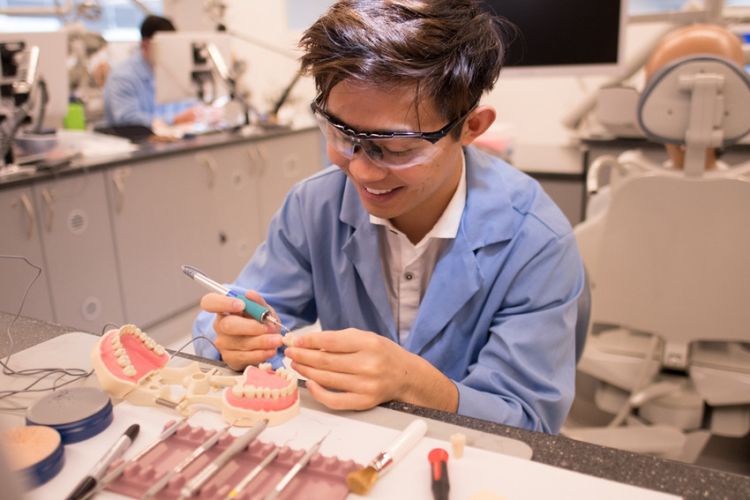Breadcrumb
Pacific ranks among top universities for graduating minority students

Pacific is one of the leading universities in the nation in graduating Asian American students with doctor’s degrees in dentistry, pharmacy and health sciences
University of the Pacific ranks as one of the best universities in the nation for graduating minority students with graduate degrees, according to Diverse: Issues in Higher Education.
Diverse: Issues in Higher Education, the nation’s premier publication covering issues pertaining to people of color in American higher education, ranks Pacific's Arthur A. Dugoni School of Dentistry as No. 2 in the nation for graduating Asian American students with doctor’s degrees in dentistry.
"We are proud that our school and tradition of nurturing a humanistic educational environment is being recognized for serving an underrepresented population and supporting efforts to broaden diversity and belonging within the field of dentistry," said Nader Nadershahi, dean of Dugoni School of Dentistry.
For the 11th-consecutive year, Pacific's Thomas J. Long School of Pharmacy ranked in the top three nationally for graduating Asian American students with doctor’s degrees in pharmaceutical sciences and administration.
"We are committed to providing opportunities for students from diverse backgrounds and lived experiences to study in our programs, and prepare them to be transformative professionals and socially conscious leaders in healthcare and science," said Rae Matsumoto, dean of Thomas J. Long School of Pharmacy.
Pacific ranked highly in several other categories for graduating minority students with graduate degrees. The School of Health Sciences ranked No. 3 for graduating Asian American students with doctor’s degrees in health professions and related programs.
"By graduating healthcare providers that more closely represent the rich diversity of our communities we are shaping the future of healthcare to be more inclusive and accessible to all populations," said Nicoleta Bugnariu, dean of School of Health Sciences.
Pacific is deeply committed to diversity, equity and inclusion, and has been ranked highly by U.S. News & World Report in its social mobility scale, which measures service to economically disadvantaged students. Pacific was 10th nationally in social mobility among private institutions and 36th overall.
"Our rankings are a reflection of the incredible work being done by our faculty, our staff and our students to make our university a national model for diversity, equity and inclusion," said Pacific President Christopher Callahan.
Since his arrival on July 1, a central part of Callahan's focus has been on diversity, equity and inclusion. To support in these efforts, Pacific recently named Mary J. Wardell-Ghirarduzzi the inaugural vice president for diversity, equity and inclusion at the university. Wardell-Ghirarduzzi will be working closely with students, faculty, staff and university leaders on Pacific’s campuses in Stockton, Sacramento and San Francisco.
The rankings by Diverse: Issues in Higher Education are based on data from U.S. Department of Education reports each institution submits annually. Using these statistics, the publication has created rankings in the total number of graduate degrees awarded at every American institution of higher education as well as specific figures in major fields of study and disciplines.
View the rankings on the Diverse: Issues in Higher Education website.





